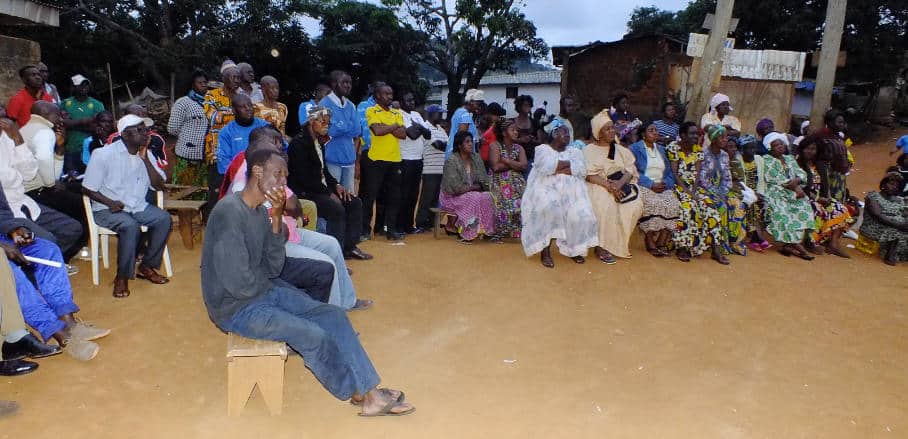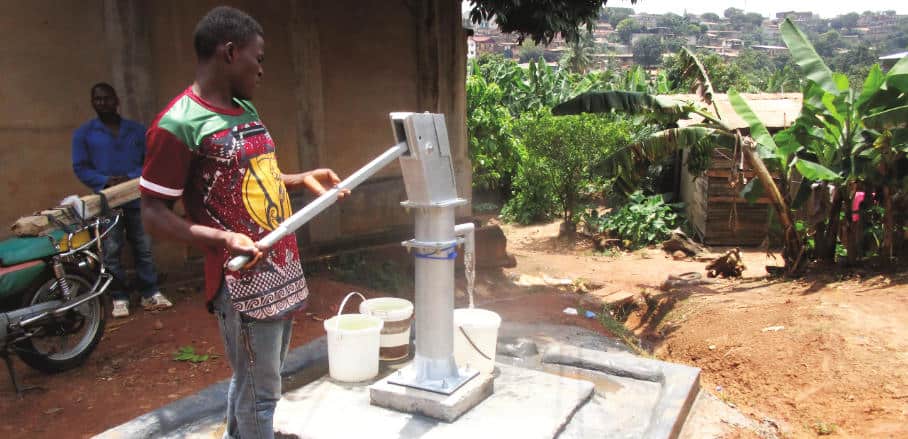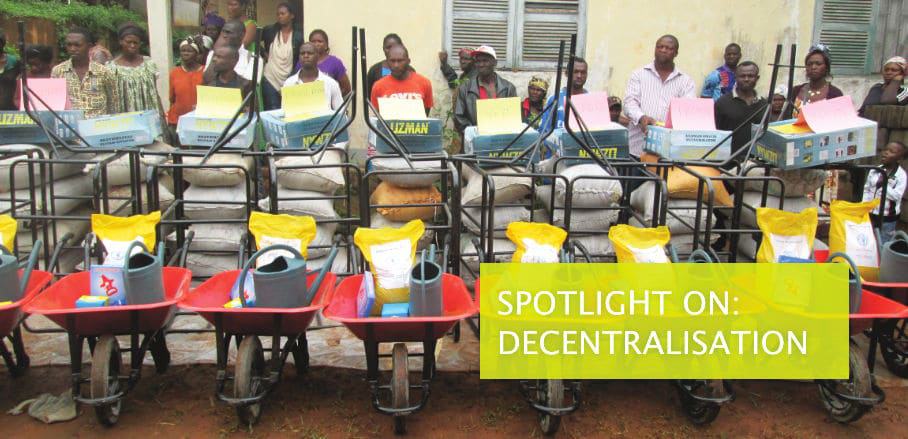Inclusive Policies need Inclusive Policymaking – Participatory Budgeting in Cameroon
Participatory Budgeting bridges the gap between governments and their people. Jules Dumas Nguebou and Achille Noupéou uncover what happens when disadvantaged Cameroonians suddenly have a say over city spending.
In Cameroon, urban policies and governance systems have been entirely inadequate in addressing the needs of vulnerable populations, particularly with respect to basic social services and rights. In fact, informal settlements account for up to 90 per cent of the urban areas, and poverty affects more than 40 per cent of citizens. Moreover, public budgets and Local Development Plans do not take into account the social rights, nor the urgent needs of vulnerable communities for access to water, energy, education, and social protection.
In contrast, Nkolo and Brazzaville are neighbourhoods in the cities of Yaoundé and Douala that have improved their access to potable water, land security, public electrification, and school infrastructures. What have they done differently? During the last ten years, the population in these districts have participated in local budgeting forums, where women, youths, and other vulnerable groups, such as internally displaced and refugees, mobilise themselves to make their voices heard. More specifically, they take advantage of the Participatory Budgeting (PB) forum to advocate for public budgets to become more sensitive to the provision of basic social services for vulnerable groups.
Between 2010 to 2019, more than ten thousand people have debated on various problems and solutions for tax mobilisation and services delivered in their localities. As a result, in Yaoundé and Douala, like in the other hundreds of communities engaged for PB, local revenues have increased significantly and strengthened the social contract in the community. Elected mayors became more open to citizens’ voices and their social demands for better living standards.

Neighbourhood forum in Yaounde 2 © ASSOAL
In this context, cities engaging for participatory budgeting, such as Yaoundé 1 or Batcham, offer communication, citizens control, accountability tools, and spaces for citizen participation, making it easier to tackle challenges at the local level. The local development plan of Yaoundé is therefore a result of a consensus between population and local authorities. Yet, there is a lot more that participatory budgeting does for a community.
Climate Change and Participatory Budgeting
Climate change, environmental degradation, and uncontrolled urbanisation significantly increase the vulnerability of Cameroonians living in poverty and compromises their right to basic social services. Due to the lack of alternatives, poor people have been forced to settle on unused land, which is frequently prone to flooding and located on swamps, hill slopes, and riverbanks. Climate change is bringing more frequent floods and landslides which destroy vulnerable homes and pollute the water sources of the marginalised population. Poor governance, corruption, and mismanagement of climate and urban policies lead to pressure on land resources, poverty, and conflicts. In order to contribute to resolving these issues, some municipalities are implementing PB within the context of climate change and the provision of Economic, Social and Cultural Rights (ESCR). In Yaoundé 4 and in Bangangte, a local climate convention was set up to discuss reducing the impact of climate change on vulnerable populations.
The Power of Civil Society and Community Engagement
Civil society organisations have lobbied governments and advocated for more inclusive, participatory, climate-sensitive policymaking at the local level. Many successes have been achieved in relation to climate-sensitive participatory budgeting. For example, a pilot project implemented by the Assoaciation des Amoureux du Livre pour le développement local (the Books Lover’s Association for Local Development, ASSOAL) used information and communication technology for citizen engagement, accountability and open governance in many local councils.

Water supply system asked by local population and realised by Yaounde 1 council © ASSOAL
Following these experiences, civil society called for the government to further establish participatory budgeting in more than 150 municipalities. As a result, the government introduced PB in its new decentralisation code in December 2019. For many observers, participatory budgeting helps to align national and local resources to local priorities including basic social services and ESCR’s for informal settlements. A “Citizen’s Budget” was also developed with the assistance of the Local Finance and Local Budget Observatory and the Citizen’s Call Centre for ESCR and local governance. The citizen budget is a concept that specifies the amount of the municipal budget allocated according to the priorities identified by the population during Participatory Budgeting forums.
Strengthening Local Democracy
Civil society engagement for PB has led to improvements in many communities around the country. For instance, PB civil society platforms have submitted citizen proposals for local democracy and the territorialising of public policies in Cameroon. Some of these proposals have been discussed with the government and have been included in the agreement with the National Governance Program. These covenants include: the systematisation and scaling up of PB in the 374 local councils of Cameroon; the promotion of ICT for local and national open governance using tools tested by ASSOAL and its partners; a capacity building program focussing on training facilitators and human capital investment to strengthen technical resources of local councils; as well as civil society mobilisation program for monitoring and evaluating public budgets, investments, and services.
In many municipalities, Public Budgeting has played an important role in including vulnerable populations into the public polities’ framework. They have collected and offered crucial insights into community needs and much-needed local solutions. In response, the government has moved forward drafting a new decentralisation code and signed many agreements with donors, local partners and civil society. However, it remains to be seen whether this framework can gain enough traction and find the resources needed for implementation.
